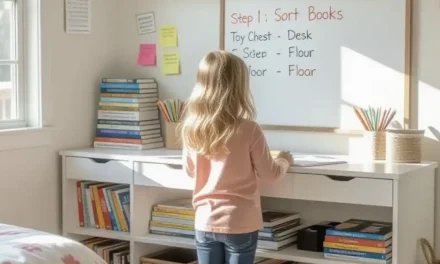
Rooting Curious Habits: Create Curious Moments
A
glance at a cloud, the ripple of fog, the shape of a shadow—these small wonders often pass unnoticed. But when you help a child pause and look again, those moments become sparks. A “curious moment” isn’t just time together—it’s a scene set for surprise. Ask, “What’s interesting today?” or “What’s caught your eye?” to open a door into their thoughts. Whether they ask about fog, toys, or time itself, it’s your presence—not your answers—that turns observation into inquiry. And when curiosity becomes part of the daily rhythm, it teaches them that attention is both a skill and a joy.
One evening, my daughter stared at a candle flickering on the table. “What makes it dance?” I asked. She guessed wind and gently blew across the flame. “What else sparks your mind?” I followed. That quiet moment grew into a habit. Now, she wonders daily—from candles to cars, from flames to fans—and our meals have become small expeditions. Her joy didn’t come from answers. It came from learning that her questions mattered—and that noticing could be fun.
Start the day with a small puzzle. Over breakfast or while getting ready, ask, “What’s something interesting you saw yesterday?” or “What do you want to figure out today?” Let the conversation wander. For younger children, it might begin with shapes or sounds; for teens, it might stem from a moment in class or something odd they noticed online. Bring their wonder back later in the day—“Did you ever figure that out?”—to show that curiosity can echo. These touchpoints don’t need to be formal. They simply need your voice, again and again, inviting them to see.
Rooting Curious Habits

Rooting Curious Habits: Ignite Their Dreams
Support children’s ambitions with encouragement and curiosity. Big dreams inspire confidence, direction, and meaningful purpose.

Rooting Curious Habits: Reward Their Efforts
Rewarding your child’s effort—not just results—builds resilience and intrinsic motivation. Celebrate persistence, courage, and growth.

Rooting Curious Habits: Share Your Whys
Let children hear your own questions and reasoning. Modeling curiosity shows that learning is lifelong and open-ended.
Table of contents

Primordial Soup for the Mind: Navigation
Navigate the book Primordial Soup for the Mind.
TIPS
- Ask small questions that open wide spaces.
- Let your own noticing set the tone.
- Don’t rush to explain—stay in the question.
ACTIVITIES
- Toy Puzzle: Discuss how a toy works, listen without correcting, 10–15 min.
- Tech Muse: Explore a teen’s question about devices or media, 10–15 min.
- Puzzle Jot: Write a mystery in a journal, talk about what sparked it, 10–15 min.
TOOLS
Wonder Journal, Puzzle Chart

Download “Primordial Soup for the Mind: A Parent’s Guide to Nurturing Intellectual Growth”
Enter your information to get this article and hundreds more as part of the FREE book Primordial Soup for the Mind.
Share your thoughts with the Thought Academy community in the Comments section below.

Sharpen those skills!
Enter your information to get our FREE practice exercises so you can hone your critical thinking and reasoning skills!







0 Comments